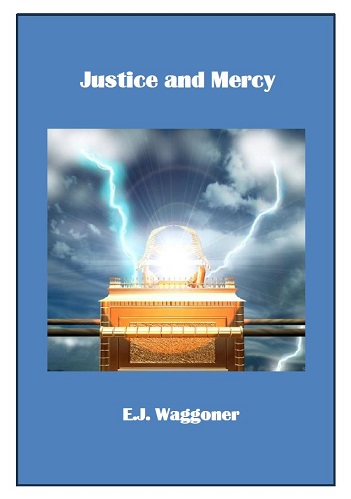Someone has to pay?
I'm sure you've all had the experience where a Bible verse you've known for years suddenly appears to you in a whole new light.
It happened to me this morning with this verse:
Let the wicked forsake his way, and the unrighteous man his thoughts: and let him return unto the LORD, and He will have mercy upon him; and to our God, for He will abundantly pardon. (Isaiah 55:7)
“He will abundantly pardon.” In the German Schlachter Bible it says: “There is much forgiveness in Him.”
I had been thinking a lot about the principle of penal substitution lately, through all the studies we have had with Brother Adrian.
The more I think about this principle, the more it seems completely unreasonable and illogical to me.
But more than that, not only unreasonable and illogical, but also cold and impersonal and unmerciful.
If, for the sins that someone has committed, for example a murder that the perpetrator sincerely repents of, God needs a substitute to take the imposed "punishment" for that murder in order to forgive the repentant perpetrator, that is – at least in my perception – an unfair or unjust principle. If an innocent being, be it human or an animal, has to suffer for the guilty person, has to shed his blood, then I can’t perceive that as just and fair. And the question is: Does the Bible actually require this? Someone must suffer, must die for something in which he has no part or guilt. He must suffer for the guilty, he must die for the guilty, so that sin can be "paid for". A kind of commercial transaction. This means that suffering and death must be inflicted so that so-called justice can be served.
Will such an act make up for or take away any of the suffering and sorrow and harm caused by the original transgression, that is, murder in our example? Or will such an act only produce more pain and more suffering, just to satisfy the principle of "justice"?
Every death involves suffering. Not only for the one who dies, but also for the relatives and those involved, and for the one who carries out the death penalty.
When God demands death as the punishment for transgression, He is actually demanding payment through suffering.
If we understand that the Ten Commandments were given in a relational kingdom to protect relationships in the highest possible way, to avoid suffering and to ensure happiness and contentment for God's children, then what sense does it make to cause more suffering and pain and punish an innocent person as compensation or payment for transgressions?
At the cross, we see that not only unspeakable suffering resulted from the sacrificial death of Jesus, but also a lot of new guilt. All those who actively participated in the crucifixion have loaded guilt onto their souls which would not only affect themselves but their relatives and even their offspring. If God wanted and even initiated the crucifixion in order to satisfy divine justice, He caused a great deal of new suffering and guilt and further sin in this act.
It all just makes no sense, except that a cold, impersonal, and unmerciful principle of supposed justice is being served, no matter what that means to those involved.
If God could not have forgiven us in any other way, although He wanted it so much, then He Himself is subject to this cold impersonal merciless principle and must be obedient to it in order to be able to forgive us. But in any case it must come from Him, because He is the Lawgiver, and the origin of all laws and creation. Therefore, if He is associated with this cold, impersonal and merciless principle of penal substitution, it is a part of His character. This is certainly the reason why many people see God as cold and impersonal and want nothing to do with Him.
Another thought is whether forgiveness is then really a remission of the debt or just a shifting of the punishment?
In the parable of the two debtors, one of whom owed 500 pence and the other 50 pence (Luke 7:41, 42), the debts are simply remitted. No one else pays them, they are simply remitted.
The verse I mentioned above revealed so deeply to me today the great loving heart of God and His desire to give us full forgiveness and freedom.
Let the wicked forsake his way, and the unrighteous man his thoughts: and let him return unto the LORD, and He will have mercy upon him; and to our God, for He will abundantly pardon. (Isaiah 55:7)
This verse tells me that God is full of mercy and that with Him is “much” or "abundant" forgiveness. When the word “much” or "abundant" is used in reference to the Father, it must really be a lot, abundant and overflowing in the highest sense!
Our Father does not have to inflict suffering and death on anyone else in order to forgive us. He is full of mercy, forgiveness and self-sacrificing love from His innermost heart. He is not a "merchant" to whom we must first bring something in order to receive forgiveness from Him. He is, after all, the great Giver, and the only thing He wants from us is our heart and trusting faith, so that He can give us all that He desires to bless us with and make us happy, not only now, but for all eternity. His name be praised!
I’m so glad that this ugly principle of penal substitution is finally exposed for what it really is: a counterfeit justice which is to hide God’s true loving and ever merciful face from us.
Thanks and praise be to the Father and the Son for giving us so much light that we can finally be freed from all the Babylonian lies about God and His Son and enter into the glorious liberty of the children of God!





